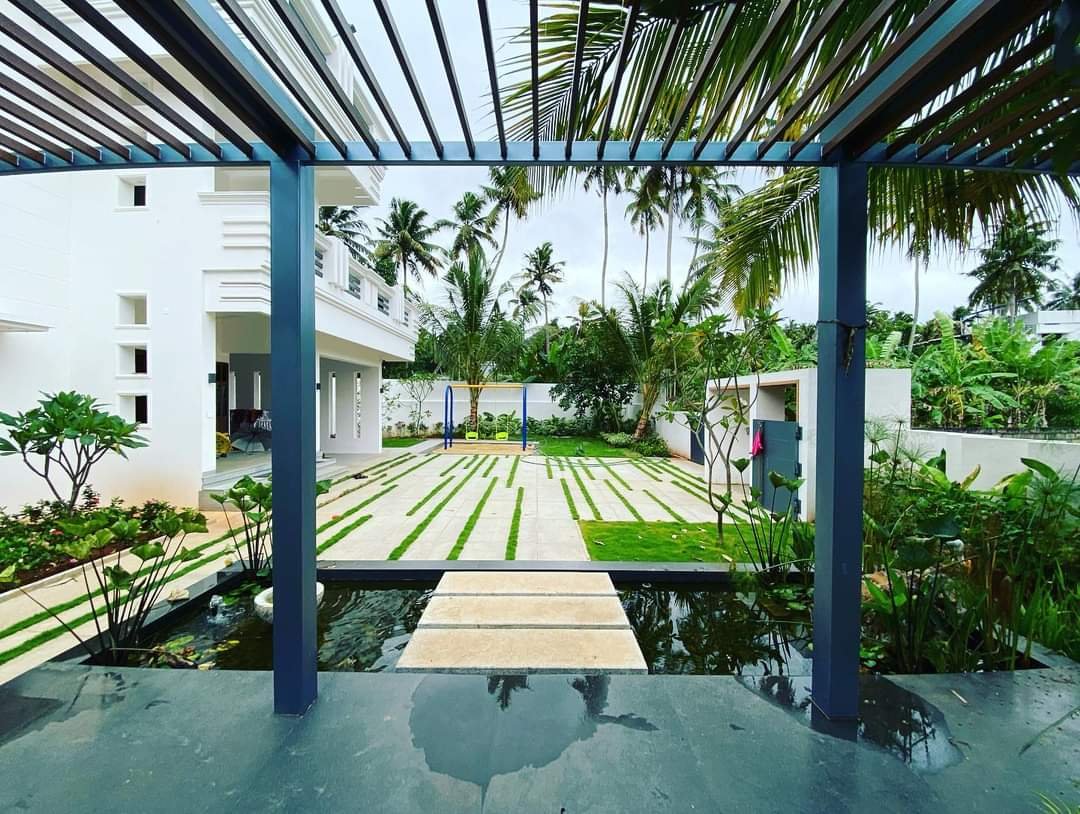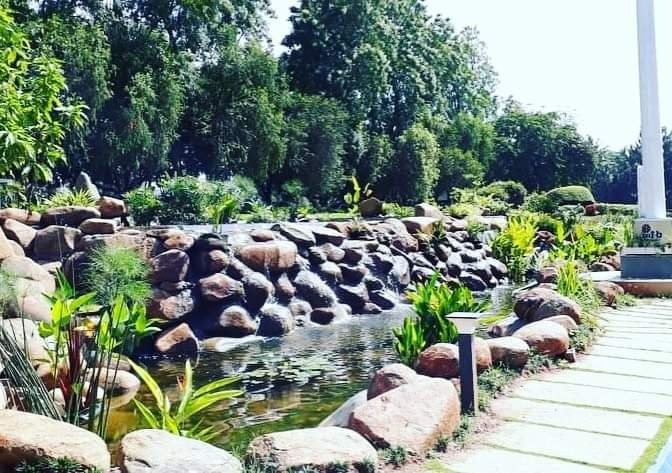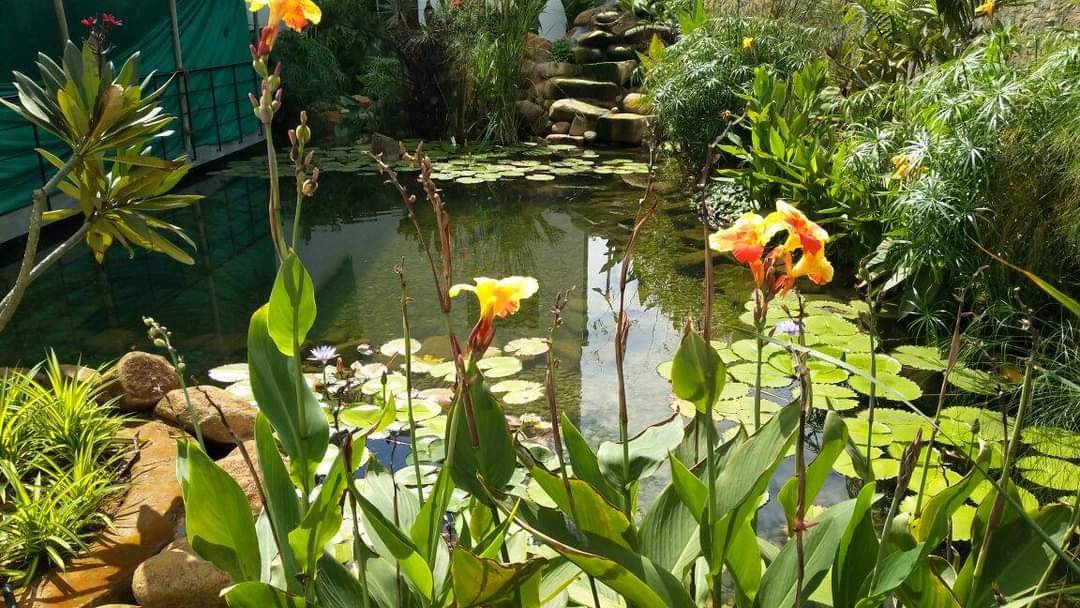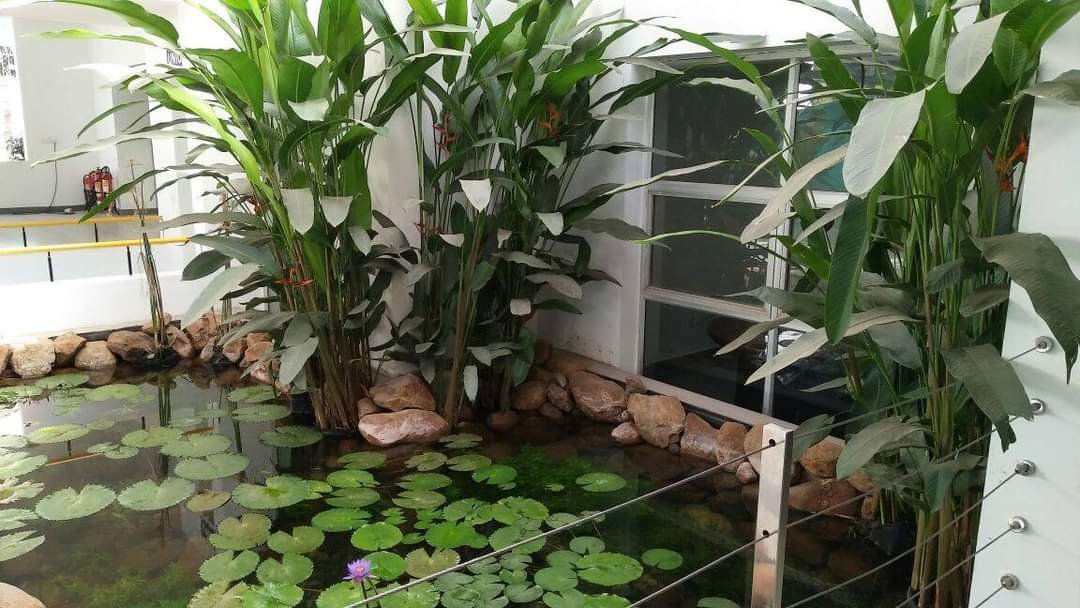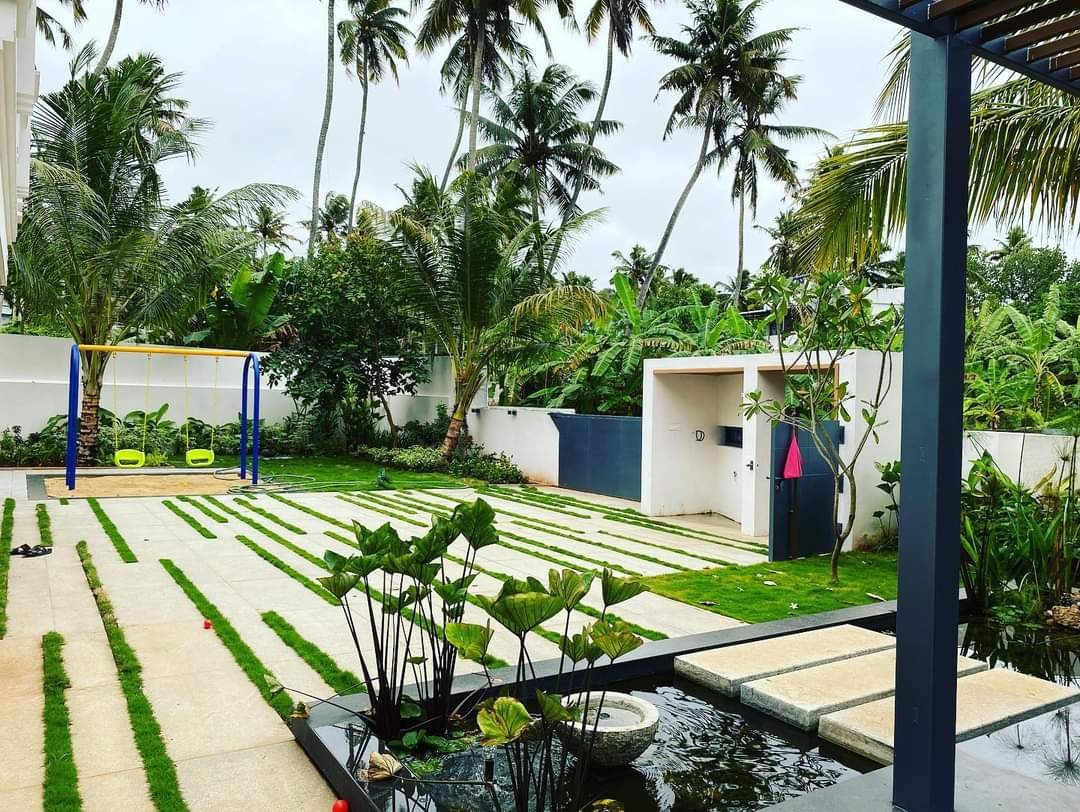Fish Pond Filteration System
A fish pond filtration system is essential for maintaining the health and cleanliness of a pond ecosystem, particularly when keeping fish. There are several components typically involved in a pond filtration system:
Mechanical Filtration: This involves removing solid debris from the water. It can be achieved through the use of filters like foam filters, filter brushes, or filter pads. These physically trap particles as water passes through them.
Biological Filtration: Biological filtration involves beneficial bacteria that break down harmful ammonia and nitrite into less harmful nitrate. This process usually occurs in a filter media with a large surface area, allowing bacteria to colonize and perform their function. Common biological filter media include ceramic rings, bio-balls, or plastic bio-ribbon.
Chemical Filtration: Chemical filtration involves the use of activated carbon or other chemical media to remove dissolved organic compounds, toxins, and other impurities from the water. Activated carbon is particularly effective in adsorbing chemicals and odors.
UV Sterilization: UV sterilizers use ultraviolet light to kill algae, bacteria, viruses, and other microorganisms present in the water. It helps in maintaining water clarity and preventing diseases among fish.
Aeration: Aeration is essential for maintaining oxygen levels in the pond, which is crucial for the health of fish and beneficial bacteria. Aeration devices like air stones or air pumps help to oxygenate the water by creating surface agitation and facilitating gas exchange.
Skimmers and Surface Cleaners: Skimmers help in removing debris such as leaves, twigs, and floating algae from the pond's surface. Surface cleaners ensure that the surface of the water remains clean, preventing buildup and improving oxygen exchange.
Water Pump: A water pump is necessary to circulate water through the filtration system. It ensures that water is continuously filtered and oxygenated, maintaining overall water quality.
When designing a filtration system for a fish pond, it's essential to consider factors such as the pond size, the number and type of fish, the presence of plants, and the desired water clarity. Proper maintenance, including regular cleaning of filters and monitoring water parameters, is crucial to ensure the efficiency and effectiveness of the filtration system.


